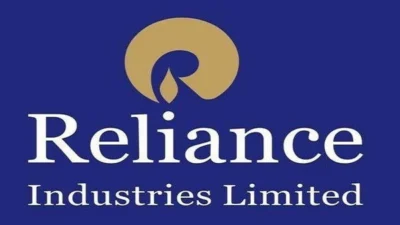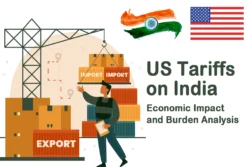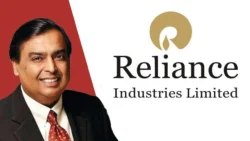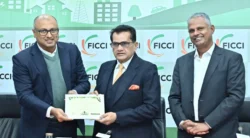
New Delhi - Jan 01, 2024 (UTC) - Reliance Industries Limited (RIL) has achieved a notable feat by being the first Indian company to employ chemical recycling for circular polymers. This strategic move, recently marked by the shipment of the initial batch of International Sustainability & Carbon Certification (ISCC)-Plus certified Circular Polymers, CircuRepol™ (Polypropylene) and CircuRelene™ (Polyethylene), underscores RIL’s commitment to addressing plastic waste concerns and supporting a Circular Economy in India.
The foray into chemical recycling positions RIL as a key player in managing plastic waste. The innovative technology allows the conversion of various plastic types, including single-use and multi-layered plastics, into pyrolysis oil, subsequently utilized to produce high-quality Circular Polymers. The process stands as an alternative for creating new plastic materials, particularly for packaging.
While the move brings environmental advantages such as reducing plastic waste and repurposing it into new materials, there are considerations about the privacy implications of chemical recycling. RIL’s initiative aligns with broader sustainability goals, including PET recycling and the utilization of circular polymers in creating products like CircuRepol™ and CircuRelene™.
CircuRepol and CircuRelene function like virgin products, requiring no different precautions or considerations. Responsible disposal is advised to maintain the circular chain of recycling.
As Reliance Industries pioneers chemical recycling for circular polymers in India, the move not only demonstrates its commitment to sustainability but also positions the company as a catalyst for transformative change in the plastics industry.
RIL’s Jamnagar refinery, having obtained the ISCC-Plus certification, ensures adherence to stringent traceability and rules in producing Circular Polymers through chemical recycling.
Despite the environmental benefits, challenges persist, including ensuring a consistent quality of chemically recycled oil and addressing the high costs associated with branded technologies. RIL acknowledges these challenges and emphasizes its commitment to addressing them through continued investments in research, development, and collaborations.
The marketability and acceptance of circular polymers are contingent on adherence to international sustainability standards, and RIL anticipates a positive market response as awareness and regulatory initiatives drive demand.
Looking ahead, RIL aims to reach an overall capacity of 1 million metric tons (MMT) through its sustainability initiatives by 2030. The focus is on enabling the Circular Economy through chemical recycling, with an emphasis on establishing and increasing volumes.
In the broader context of environmental considerations, responsible disposal of products like CircuRepol™ and CircuRelene™ is advised to maintain the circular chain of recycling.
As Reliance Industries pioneers chemical recycling for circular polymers in India, the move is recognized as a significant step toward sustainable practices in the plastics industry.
RIL’s Comprehensive Sustainability Goals
RIL’s venture into chemical recycling aligns seamlessly with its overarching sustainability goals. The company claims that it adopts a multi-faceted approach, including PET recycling, the recycling of post-consumer PET bottles, and circular polymers. Through initiatives like ReRoute™, RIL recycles end-of-life plastics to construct roads, contributing to a circular and sustainable approach.
RIL ensures the efficiency and reliability of chemical recycling by maintaining a chain of custody for the supply chain. Obtaining ISCC-Plus certification for all members in the supply chain adds an extra layer of credibility, demonstrating RIL’s commitment to international sustainability standards.
Challenges and Solutions
Despite the benefits of chemical recycling, challenges include the availability and consistent quality of chemically recycled oil, along with the high costs associated with branded technologies. RIL is actively investing in research, development, infrastructure, scale-up, partnerships, and collaborations to overcome these challenges and pave the way for a more sustainable future.
Adherence to international sustainability standards enhances the credibility of circular polymers and allows access to markets that prioritize sustainability. RIL expects a positive response from customers and anticipates the reduction of premiums for sustainable solutions as the industry increasingly adopts Circular Economy practices.
Future Outlook
The demand for Circular Polymers is on the rise, driven by increased awareness and regulatory initiatives. RIL anticipates continued market growth and expects a positive shift as the industry embraces Circular Economy practices. With this new development, RIL aims to reach an overall capacity of 1 million metric tons (MMT) through all its sustainability initiatives by 2030. The company is focusing on enabling the Circular Economy through chemical recycling, with an emphasis on establishing and increasing volumes rather than cost advantages.





